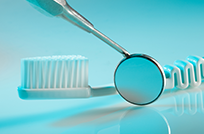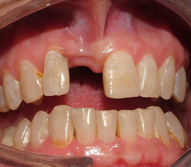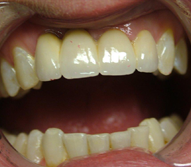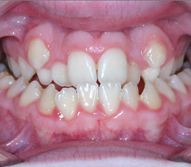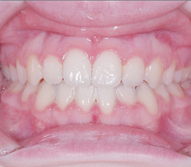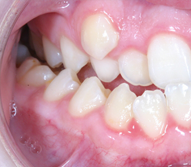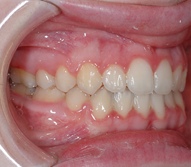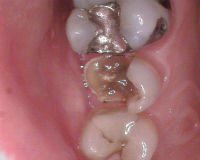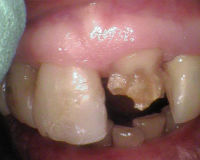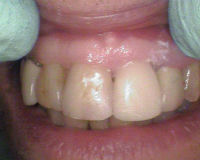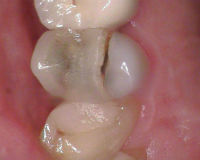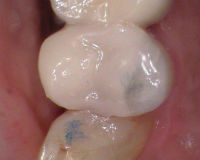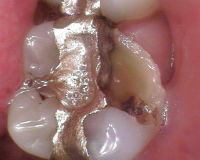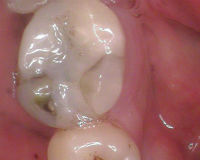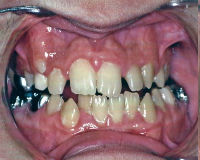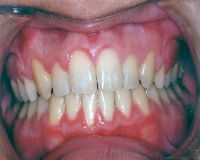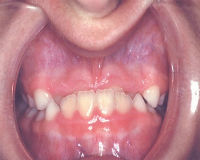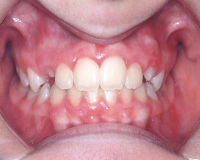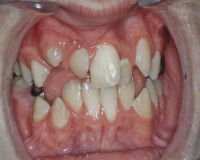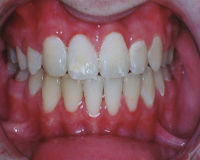Everything You Need To Know About
Wisdom Teeth

By your late teens, your jawbone has reached its adult size. However, in some cases, a persons jaw may not be wide enough to provide space for incoming wisdom teeth.
While the crown (chewing surface of the tooth) may break through the gums successfully, as well as aligned, in other cases, the wisdom tooth can begin to grow into the jawbone. Wisdom teeth are also known to grow in horizontally –into other teeth, causing nerve pain and even infection.
Due to potential discomfort and other concerns, the development of wisdom teeth is often cause for wisdom teeth removal.
Don't wait for the pain and discomfort that wisdom teeth can cause. If you require a wisdom teeth removal, let the professionals at 404 Dental take care of you!
What are Wisdom Teeth?
From birth, teeth erupt in various stages: incisors, canines, premolars, molars, and wisdom teeth. People usually develop four wisdom teeth in total, which emerge at the back of the mouth, two on the top and two on the bottom, on both left and right sides.
While emergence differs per person, not all wisdom teeth full erupt – many remain half-buried and cause infection and irritation within the gums. These teeth are called “impacted” wisdom teeth.
In some cases, wisdom teeth can exist without concern, but in other cases, when not properly aligned, impacted, or when space within the jaw is unavailable, they force a need for surgical removal.
When Do Wisdom Teeth Usually Come Out?
As the third and final set of molars, people typically develop wisdom teeth in their late teens and early twenties. It is between these ages that people typically begin to notice these new teeth, as well as when their dentists will begin to question the patient about any wisdom tooth discomfort they may feel.
If both dentist and patient see value in removal, the dentist will refer the patient to an oral surgeon. It is then typically up to the patient to connect with the surgeon, attend a consultation, and arrange the booking of a suitable time for surgery.
Problems That May Arise From Wisdom Teeth
When wisdom teeth develop misaligned, they can position themselves in many unnatural directions. When this occurs, wisdom teeth can begin imbedding themselves into nerves, your jawbone, and your adjacent teeth – causing additional tooth damage. Partially erupted teeth are especially vulnerable as the open wound can allow bacteria to enter around the tooth, causing infection. These infections can lead to:
- Pain
- Swelling
- Jaw stiffness
- General illness
Partially erupted teeth are also vulnerable to both tooth decay and gum disease - as mouth care becomes painful and therefore more difficult. Avoid this by scheduling a wisdom teeth removal surgery.
Why Should You Remove Wisdom Teeth?

Late teens or early twenties are the ideal ages for wisdom teeth removal as teeth are developed sufficiently enough to determine impact.
Adults and teens are generally encouraged to remove their wisdom teeth before they run into any discomfort, as surgery at this time is generally less complicated and healing takes less time. Waiting until the onset of pain can lead to unwanted complications as well as a more difficult recovery.
Teens
As a parent, you never want to see your child in pain. Regular dentist visits can help to ensure that your teen’s wisdom teeth are being monitored and taken care of.
Wisdom teeth become more firmly anchored in your jaw over time, which is why early removal is key. With strong roots that continue to lengthen as you age, the longer you wait to have your wisdom teeth removed, the more post-removal pain you may experience.
Adults
If you have waited to remove your wisdom teeth, there’s no need to panic, but you should be proactive.
As mentioned above, your wisdom teeth will begin to solidify their roots into the jawbone over time. A dentist will be able to identify how deep your roots have grown in your adulthood and will be able to help you anticipate the level of post-surgery pain you may experience as a result.
How Long is Wisdom Teeth Surgery?
Wisdom tooth surgery time varies based on the length of root, as well as the severity of infection, the number of teeth being removed, and the positions of the teeth.
For young adults whose wisdom teeth have not yet taken root into their jaw, and have grown relatively straight, removal surgery can likely be completed within an hour. However, if the tooth has grown in sideways, forcing its way into gum, nerve, or other teeth, the oral surgeon may need more time to strategize the tooth’s removal.
For those whose wisdom teeth have extended deep roots, the oral surgeon will have to take even greater care, as well as more surgical time, as the surgical team must work harder to retrieve the tooth’s imbedded root as well.
Will I Be Sedated During The Wisdom Teeth Removal Process?
It is generally recommend that wisdom teeth removal surgery is done under deep or IV sedation. This approach provides a comfortable and relaxed operation.
To be eligible for sedation, you must not drink or eat 8 hours prior to surgery, with the exception if clear fluids which can be consumed up to 2 hours prior to surgery.
After sedation it is normal to be drowsy and poorly coordinated for several hours. Therefore, it is absolutely necessary that someone responsible accompany you to and from your wisdom teeth surgery. This person must also be able to stay with you for 4 to 6 hours post-surgery.
Warning: Do not drive, operate heavy machinery, or consume alcohol for at least 24 hours post-surgery.
How Long Does It Take To Recover?
Recovery time for wisdom teeth removal is generally three to four days. In less aggressive cases, this time can lessen, and in more aggressive cases, recovery can stretch to a week’s time. Wisdom teeth recovery time is dependent on how badly the teeth were impacted, as well as the ways in which the teeth erupted.
9 Foods To Eat After Wisdom Teeth Removal

Following wisdom tooth removal, eating can be a challenge. Between discomfort and freezing, pureed or liquid based foods are your best choice for nutrition. Below are some examples of what to eat during wisdom teeth recovery:
- Smoothies
- Applesauce
- Ice cream/ Popsicles
- Soup
- Yogurt
- Instant Oatmeal
- Pudding
- Jell-O
- Mashed Potatoes
Contact 404 Dental for More Information about Wisdom Teeth and Wisdom Teeth Removal
At 404 Dental, we know that the idea of wisdom teeth removal can sound scary and intimidating. However, we can assure you that our surgeons are gentle, caring, and extremely experienced.
Let us ease your mind and provide you with the quality care you deserve
Have a question for our team about our wisdom teeth removal process? Contact us today! We’d be more than happy to speak with you.

